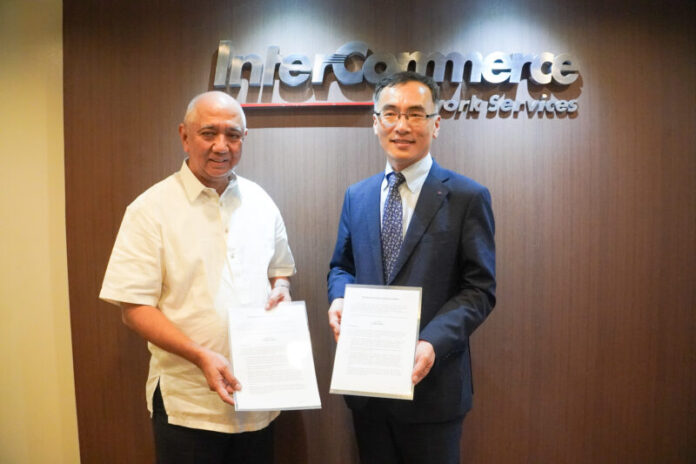
-
InterCommerce Network Services and Korea Trade Network signed an agreement to develop an origin management system (OMS) for the promotion of free trade agreements in the Philippines
-
The OMS will enable exporters to assess whether their products qualify under the relevant rules of origin requirements of FTAs/generalized system of preferences
-
The system can make origin certification process faster and transparent, helping businesses and exporters utilize FTAs
-
This will help businesses reduce costs as they can take advantage of preferential tariffs under such agreements
-
Through OMS, exporters can submit applications to the Bureau of Customs’ Export Coordination Division for a product evaluation report
-
The cloud-based system will be turned over to the Department of Trade and Industry next year
InterCommerce Network Services, Inc. (INS) and Korea Trade Network (KTNET) this week signed an agreement to develop and implement an origin management system (OMS) for the promotion of free trade agreements (FTA) in the Philippines.
The memorandum of understanding, signed by INS president Francis Norman Lopez and KTNET president and chief executive officer Young-hwan Cha in Manila on March 5, follows the November 29, 2023 signing of the Record of Discussions for the project’s implementation between the Department of Trade and Industry (DTI) and Korea Institute for Advancement of Technology.
READ: PH, Korea to develop origin management system
KTNET, the Korean government’s trade automation business service provider, will implement the project with INS as its partner. The DTI-Export Marketing Bureau will take the lead in implementation on the Philippines’ side.
INS will help maintain the cloud-based system once it is transferred to DTI next year.
Training will be provided to DTI personnel and exporters on the use of the OMS.
The OMS will enable exporters to assess whether their export product qualifies under the relevant rules of origin requirements of FTAs/generalized system of preferences (GSP) by inputting necessary information.
Additionally, an artificial intelligence-enabled Harmonized System (HS) classification tool will assist exporters in determining the appropriate HS code/s for their product/s.
The project aims to enhance the international competitiveness of Philippine micro, small, and medium enterprises, increase utilization of existing Philippine FTAs and preferential trade arrangements, and reduce the time and cost of Philippine manufacturers and traders to comply with rules of origin requirements of FTAs and GSPs.
In an interview with PortCalls at the sidelines of the agreement signing, Lopez said they will be replicating KTNET’s system in Korea but will enhance it to meet the requirements of Philippine exporters.
Aside from enabling exporters to check whether their products qualify for rules of origin requirements, Lopez said that through the OMS, exporters can submit applications to BOC’s Export Coordination Division (ECD) for the product evaluation report (PER), if the product is qualified under a specific FTA origin criterion.
Upon approval, the exporter will be informed that their product is qualified, and its details will be uploaded into BOC’s electronic certificate of origin (e-CO) platform, which was also established by INS for the customs bureau.
READ: BOC creates portal for e-CO registration
With ECD approval of the PER, the exporter will have a link to apply for the CO in the e-CO platform.
Currently, BOC’s e-CO platform is used for the issuance of e-COs to secure preferential tariff under the Association of Southeast Asian Nations Trade in Goods Agreement.
Cha, in an interview with PortCalls, said the OMS can make origin certification process faster and transparent, helping businesses and exporters utilize FTAs, thereby reducing costs as they can take advantage of preferential tariffs under such agreements.
He noted that utilization of FTAs in Korea increased from around 60% to 82% last year when they implemented their FTA origin determination service called FTA Korea Plus.
Cha said the Philippines will be the first country where the system will be implemented outside of South Korea, although similar systems are also being utilized around the world, especially in developed countries. – Roumina Pablo




